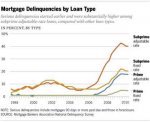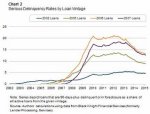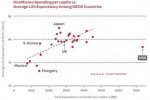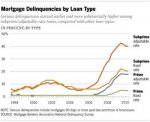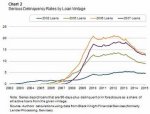Yes, of course I am being absurd about it. But we are a Death Penalty nation.. Death Penalty is 10x more expensive because of costs such a drugs to kill someone, the medical equipment required, hiring staff and such. If we are gonna be a death penalty country you have to find ways to lower the costs and because we are "humane" today the most simple would be end of life costs. A bullet, a noose or the chair is more cost effective at this point.
Krugman and Stiglitz types aren't the ones you want. Stiglitz is a Third Way economics guy who is part of the problem. Remember he was part of the Clinton Admin. There was "good" times under Clinton but everybody forgets the Dot Com bubble or it's under Clinton the housing crisis seeds were sown (and no I am not talking CRA, but Regulations). But Stiglitz is the standard economic adviser in whore (he goes where he gets paid and there is nothing wrong that). Stiglitz bounced around since 2008 from France, UN, Greece, Scotland's Government economic commission on Independence and now is being paid by the Labour Party in the UK. Basically he shows up on the radar when he's plugging a book.
As William K. Black has said about Third Way: "Third Way is this group that pretends sometimes to be center-left but is actually completely a creation of Wall Street--it's run by Wall Street for Wall Street with this false flag operation as if it were a center-left group. It's nothing of the sort."
Krugman is huckster, a snake oil salesman or whatever term you want to use. He hasn't produced anything of worth in years and in the world of Academia where Krugman lives that is fine. You can live and die on a Nobel prize, collect speaking fees and write a column.. Which is not much different then Stiglitz.
Really? Last I checked the US has shifted strong left. As a Libertarian it's shifted in some ways (social) I wanted but not in the way I wanted. Just follow the damn Constitution and we don't have to pass new laws to recognize the rights of people, groups or whatever.. But in economic ways, it hasn't. US has SHIFTED very left. We now have Obamacare (major economic change),
NRLB ruling in August , FCC's net neutrality ruling and so forth.


